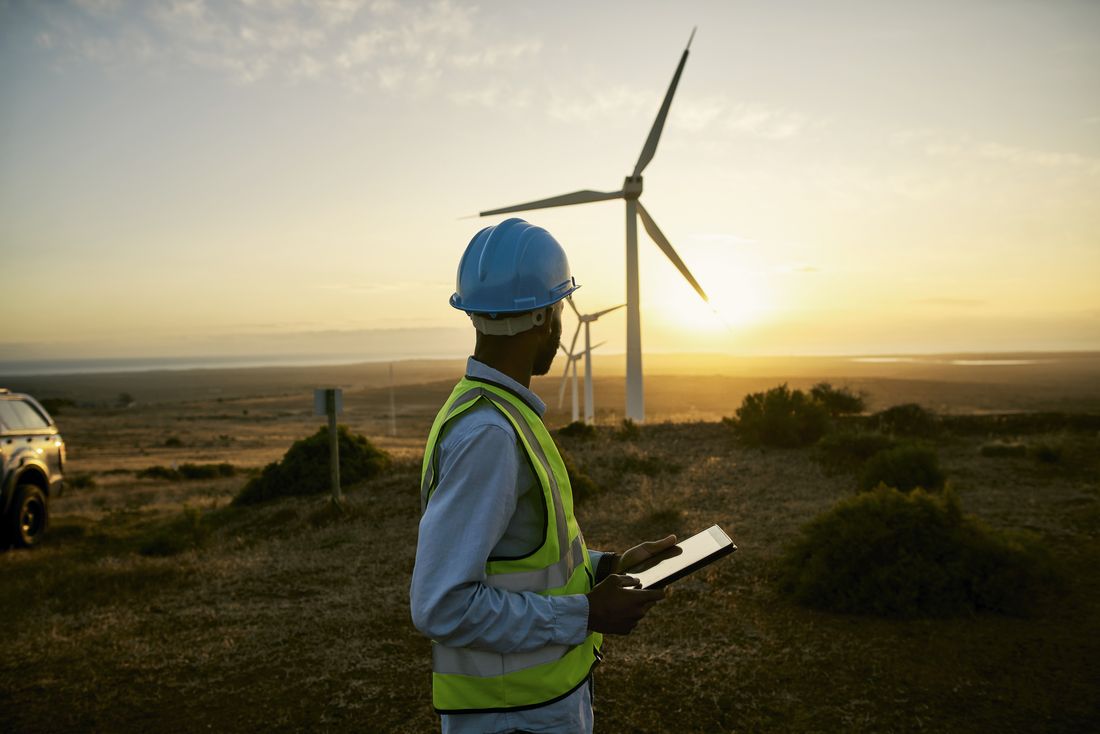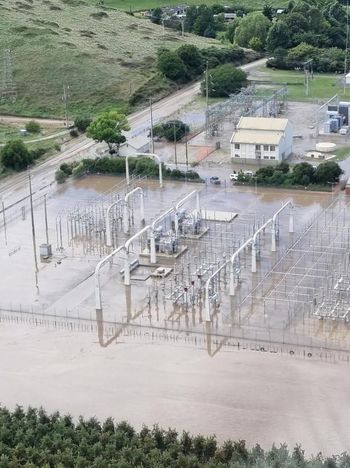CIGRE 2023 Strategic Plan & Horizon 2030: Entering our Second Century with Renewed Vision
Entering CIGRE's 2nd Century - Strategy for the Energy Transition

Introduction
CIGRE is a member based, apolitical and not-for-profit professional association, established under French law in 1921. Now entering its second century, the organization has developed into the foremost global community for sharing end to end (E2E) power system expertise for the betterment of society.
CIGRE now has nearly 20,000 members in over 90 countries, comprising researchers, academics, engineers, technicians, suppliers, regulators, and other decision makers. This membership is organized and represented via a strong confederation of over 60 National Committees, further supported by numerous regional bodies.
CIGRE provides a global forum for the development and open exchange of electricity industry knowledge, information and expertise which is both technically relevant and practically applicable for the future of electric power systems.
This creates a unique opportunity at the individual, organization, national and international levels for the development of technical competencies and the provision of authoritative, unbiased technical advice.
Our Purpose for the 2023 Revision
As the ongoing global energy transition will involve many disruptive, challenging, and exciting changes, CIGRE will continue to lead and evolve to respond to these challenges and assist with the necessary organizational and structural requirements.
CIGRE proposes this 2023 revision for its Strategic Plan with a horizon of 2030, to ensure our leadership for power system expertise for our stakeholders, and for society’s needs for electricity.
Our Stakeholders
Our stakeholders include thousands of people worldwide who directly or indirectly serve the electricity industry, including those who will engage in the industry in the future.
In addition to CIGRE staff and members, our main stakeholders are executives, policy makers, regulators, professionals from industry, universities, and other associations such as the International Energy Agency.
Our Strategic Context For 2030
As the Earth’s population continues to increase, so does pressure on the planet’s key resources, especially food, clean water and energy. Global development and peace will in part be dependent on equitable access to these key resources.
Traditional carbon-based energy resources are under growing scrutiny due to environmental considerations. Electricity, one of the most efficient forms of energy, will almost certainly raise its share of the global energy portfolio to become the dominant environmental solution for transportation, industry, buildings, and housing, and in the future all aspects of society.
The broader energy and electricity industry environment in which CIGRE operates is undergoing a major transition. While traditional large-scale generation, transmission and distribution of electricity will continue, it will be increasingly complemented by dispersed renewable and embedded energy sources. A plethora of new and innovative participants have amplified system operations from purely centralized macro technologies to shared decentralized micro technologies. CIGRE has advanced these horizons and it is our objective to continue an innovative approach, creating electricity benchmarks and guidelines, and sharing experiences. To this end, CIGRE will keep attracting and retaining new market entrants into the electricity and power systems sector.
While our CIGRE End-to-End (E2E) initiative started years earlier broadens our scope to the fullest extent of power systems and pushes boundaries to integrate elements such as electricity consumer to prosumer supply, digitization E2E, and boundless electricity innovations, the core of CIGRE’s mission remains power systems issues related to the development, operation and management of electric power systems and markets, as well as the design, manufacturing, construction, maintenance, reuse and ultimate disposal of equipment and installations.
CIGRE’s goals will continue to be:
- Facilitating and developing the exchange of engineering and electricity market knowledge and information on power systems.
- Adding value to knowledge and information exchanges by synthesizing state-of-the-art and global best practices.
- Contributing to the promotion of social sustainable development.
- Developing guidelines and information to aid the emergence of new technologies and techniques.
- Fostering growth and development opportunities for the future workforce needed for the energy transition.
- Growing membership and member services to fulfill our Purpose, Vision, Mission, and Values.
Our Purpose
Enable sustainable electricity for all through the development of power system expertise globally.
Our Mission
Contribute to the betterment of power systems and electricity by enhancing the community of power system expertise.
Our Vision
The leading, most authoritative, and innovative, global community for the sharing and development of electric power system expertise.
Our Values
Impartiality - Providing completely unbiased technical information and solutions to electric power systems issues and problems.
Accessibility - Disseminating knowledge without barriers to the global community.
Transparency - Open processes, guidelines, and finances.
Making a Difference - Partnering through our National Committees to disseminate technical information for the betterment of society.
Advancement - Growing and encouraging our members, including the next generation and women, through global participation to achieve their individual and collective goals in advancing electric power systems.
Cooperation - Collaborating with other international organizations of related interests.
Integrity - Always honest and professional in our endeavours.
Adaptability - Able to address and influence emerging issues affecting the electric power sector in a timely manner.
Diversity, Equity, and Inclusion - Advancing diversity in the technical profession and promoting an environment for an equitable and inclusive culture that welcomes, engages, and rewards all who contribute.
Strategic Plan - Our path forward
Strategic Themes
- Influence and Contribute – Providing key information for innovation and policy direction, and standards development to executives, regulators, government agencies, policy makers, innovators, and engineers.
- Vibrant and Inclusive – Excellent Central Office services and enabling National Committee growth and participation.
- The Electricity Future – Understand and influence the development of new technology and practices, including sustainability and governance aspects.
- People and Skills of the Future – Increase participation and skills for our growing membership and improve the diversity of our membership to enhance our relevance in addressing the electric power systems of the future across the globe.
Key Goals & Metrics
CIGRE will continue to grow global membership and membership diversity to advance its technical leadership and support the high-quality volunteer base that is at its core. CIGRE will continue to promote its brand of unbiased and transparent information through channels such as eCIGRE with adaptability for new entrants and a growing world audience.
CIGRE’s 2023 Strategic Plan will yield the following outcomes and metrics by 2030 or before:
- CIGRE will advance as a power system expertise organization, always looking to those important intersections of energy related activities. For example, we will advance on innovation and leading-edge topics in the energy transition.
- Membership will grow to between 30,000 and 35,000 members (equivalent) by 2030 (7-10% growth per annum). Active membership, those participating in Study Committees, Working Groups, and other groups (e.g., governing bodies, task forces), should be monitored and grow proportionately with membership growth.
- Next Generation Network (NGN) and Women in Energy (WiE) are key elements in expanding and managing our technical activities. A step further is to have CIGRE NGN and WiE nominated representatives (one NGN and one WiE for each of the 16 Study Committees) empowered as Regular Members. In 2024, consideration will be given to: expand the number of Regular Members for each Study Committee from 24 to 34; reduce the six additional Distribution Members to four; add two new Regular Members (i.e., one NGN representative and one WiE representative); and reduce the number of Observers to 10.
- Demonstrate on our CIGRE website and in promotional material the energy transition changes that will be made through our Technical Council, with a graphical illustration of the 16 Study Committees’ areas of activities, highlighting the new power system trends. Also, we will adapt the names of Study Committees to better reflect energy transition interests.
- Membership will grow in diversity. The average age of members, currently in the mid-40s, will fall to the low 40s. The proportion of women with STEM (Science, Technology, Engineering, and Mathematics) backgrounds, currently at 11+%, will be 20%, and growing. We will also attract more women with other skillsets, such as economists, lawyers, regulators, and environmentalists.
- Improve our communication with academics to promote the new era of the Electric Power Industry (EPI) in universities and become a major player in the technical training of the new generation (students).
- Grow membership worldwide, showing a greater proportionate growth in underserved and underrepresented areas such as Africa and Asia.
- Establish a cooperation agreement with the International Energy Agency by 2024.
- Sustain the biennial Paris Session, growing to 5000 delegates with over 1000 papers (Scopus indexed). Also grow regional and national conferences with an increase in the number of events in underserved areas, and with higher attendances. Enhance the networking platforms at future Paris Sessions.
- Develop greater diversity in energy sectors and new entrants in support of the energy transition. The metric is to identify those new players as collective members or as exhibitors at Paris Sessions and other conferences.
- Develop and monitor the new products and technologies that are created by new players in the energy transition, such as renewables, electrification, and new use cases. CIGRE will advance as a repository of critical information for the entire electricity sector.
- Develop cash reserves needed for contingencies (e.g., loss of a Paris Session due to circumstances beyond our control). An assessment is needed to redevelop the target for inflation and other factors, but the floor should be at least 6 million euros by 2030.
Technical Knowledge Advancement
CIGRE at its core is the development and dissemination of unbiased technical knowledge for power system expertise, broadening to all facets of the energy transition.
The CIGRE Technical Council is the center of this advancement as are the National Committees with their local initiatives in conferences and in assisting the Technical Council. The organizational structure of CIGRE technical activities is noted below.
Areas to advance include:
- Broaden the Technical Council to meet the future of the energy transition, providing greater visibility to the following topics, in addition to current activities:
- Hydrogen
- Storage
- Wind and Solar PV Sources
- Grids and Flexibility
- Consumers, Prosumers and Electrical Vehicles
- Sustainability and Climate Change
- Sector Integration
- Digitalization
- Develop and sustain CIGRE digital platforms, expand CIGRE Academy webinars and professional development actions, enlarge sourcing for our publications, and make CIGRE Science and Engineering journal recognized as a leading scientific publication.
2023 CIGRE Organization of Technical Activities
Currently, CIGRE works within 16 domains of work, each with its own expert global Study Committee and program of work.
Group A – Equipment
- A1 Rotating electrical machines
- A2 Power transformers and reactors
- A3 Transmission and distribution equipment
Group B – Technologies
- B1 Insulated cables
- B2 Overhead lines
- B3 Substations and electrical installations
- B4 DC systems and power electronics
- B5 Protection and automation
Group C – Systems
- C1 Power system development and economics
- C2 Power system operation and control
- C3 Power system environmental performance
- C4 Power system technical performance
- C5 Electricity markets and regulation
- C6 Active distribution systems and distributed energy resources
Group D – New Materials and IT
- D1 Materials and emerging test techniques
- D2 Information systems and telecommunication
Changes approved for Study Committee names and scopes are as follows: 1) A1 – Power Generation and Electromechanical Energy Conversion, C3 - Power System Sustainability and Environmental Performance, and D2 – Information Systems, Telecommunications, and Cybersecurity. Emphasis will be given to highlight relevant aspects of the energy transition in CIGRE, while keeping the E2E vision of the electricity industry. Also, Technical Council empowerment of both, Next Generation Network and Women in Energy are included in the Plan’s revision.
Reference: Full Approved Reports by the Strategic Task Force & Strategic Advisory Group on Energy Transition
Our governance body, the Administrative Council of CIGRE, has approved this document (and detailed reports) as the framework for entering CIGRE’s second century. This is the 2023 edition of a document that will be updated periodically as we move towards the 2030 horizon.
Our thanks go to all the volunteers who contributed to this effort, and the extended community of thousands of CIGRE volunteers “for power system expertise.” The listing of volunteers is noted in the detailed reports.
Thumbnail & banner credit: photo by pixdeluxe on iStock



